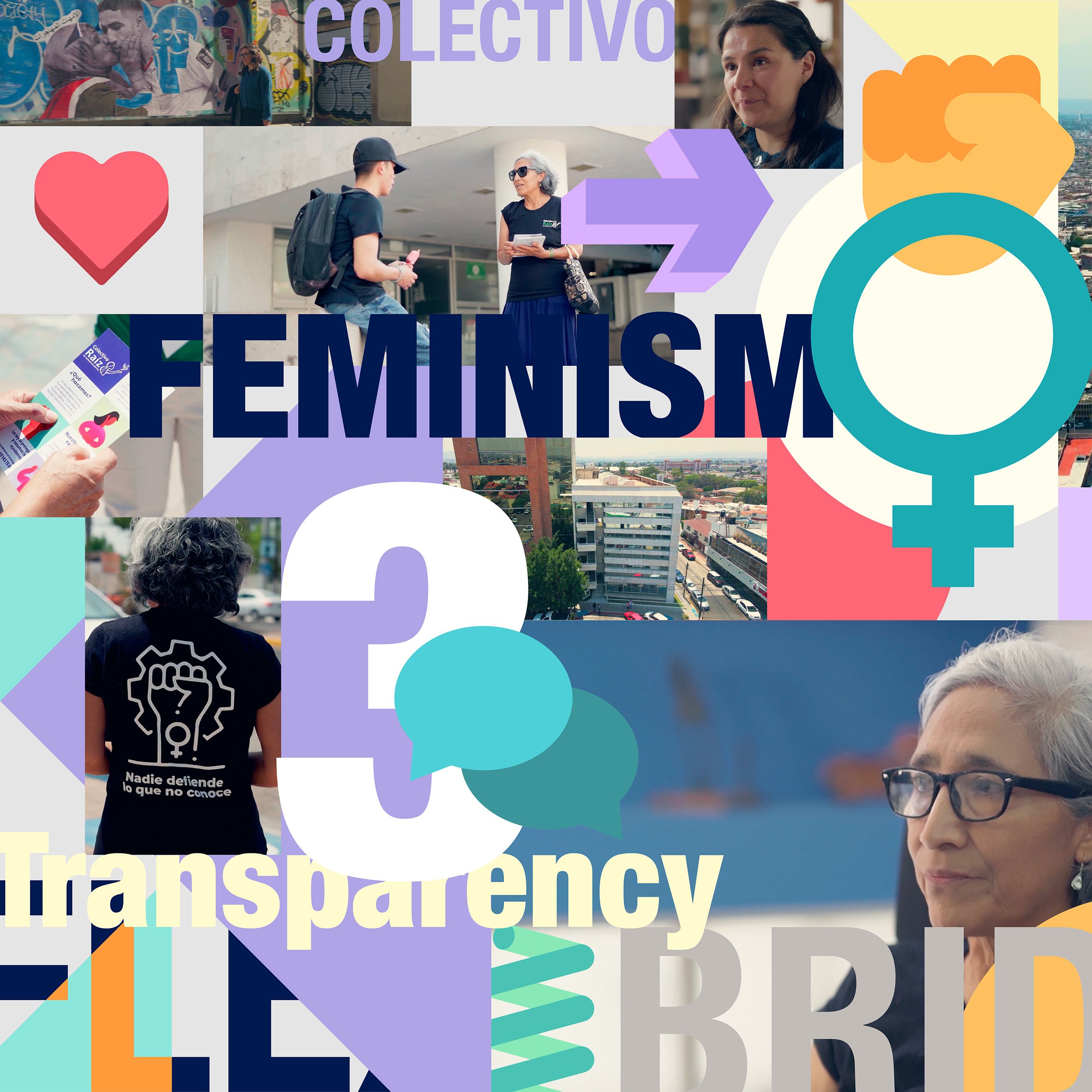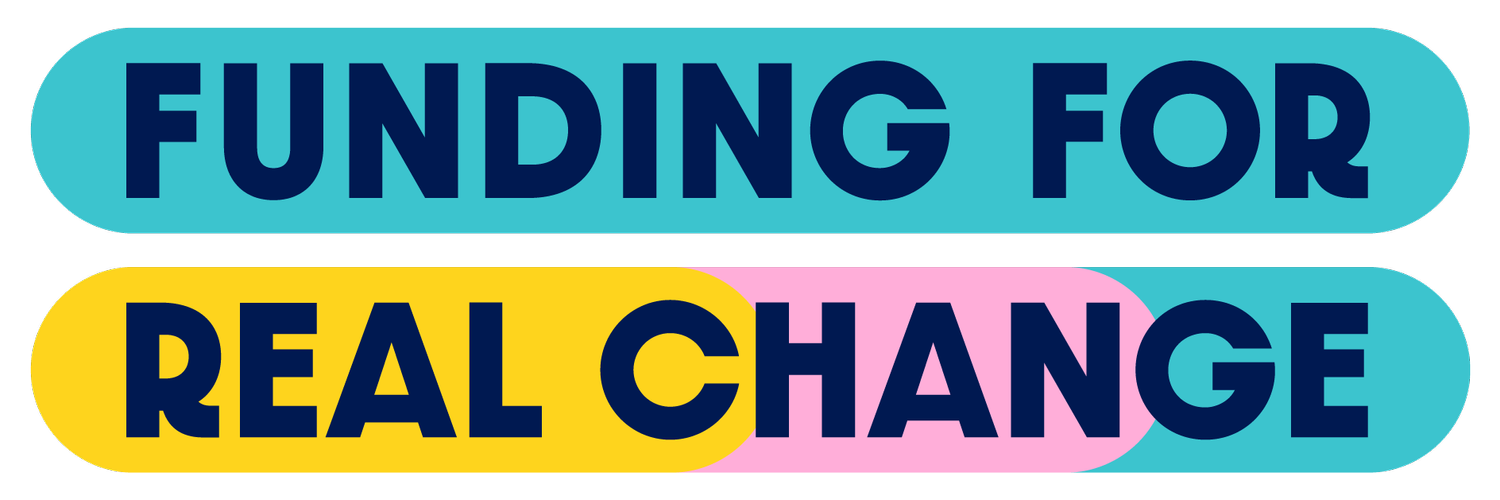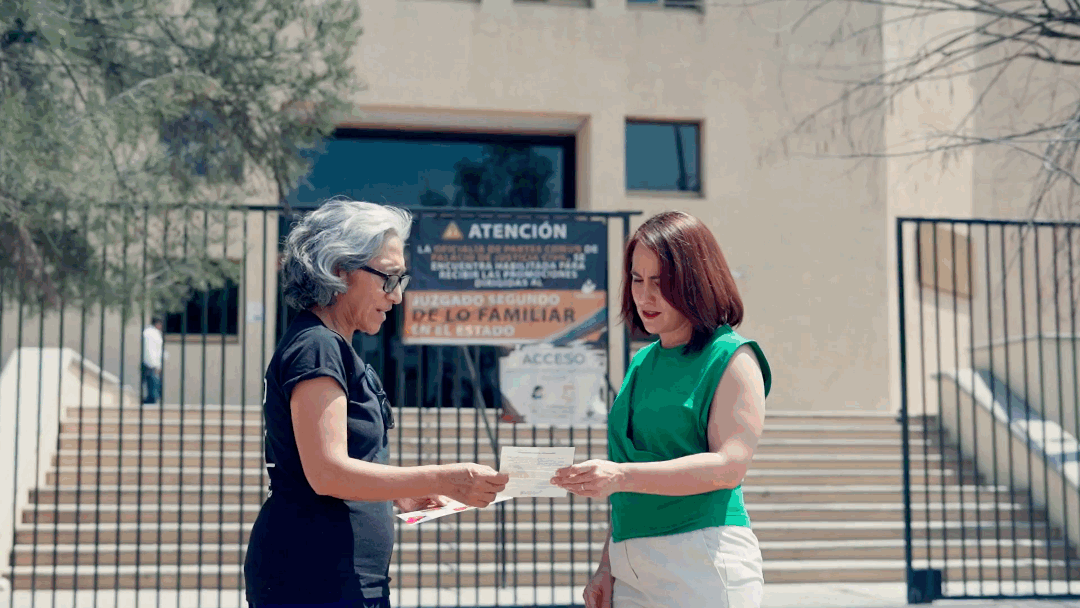Fundación Avina +
Colectivo Raíz
Video by Paul Johannessen
Learn more about:
Fundación Avina
Learn more about:
Colectivo Raíz

Fundación Avina: Building collective power, realizing systemic change
Guided by its institutional identity and values
Fundación Avina has embarked upon a journey to more fully articulate this institutional identity and to live those values in a rigorous and holistic way across the numerous legal entities and institutions that comprise its complex ecosystem. For example, Avina Americas is a U.S.-based non-profit grantmaking entity that supports initiatives aligned with the foundation’s priorities across three interconnected pillars of sustainable development: democratic innovation, climate action, and a just and regenerative economy. Over the past few years, it has come to embrace feminist principles that center the importance of building collective power and supporting collective care of people and the planet to bring about systemic social change. So, what does this look like in practice?
Valeria Scorza, Fundación Avina
Fundación Avina is a philanthropic organization with a strong sense of self as a Global South organization. This identity is not merely a reflection of its geographical location – with 75 full-time staff members based in 19 countries in Latin America – but rather the lens through which it sees the world and constructs its understanding of how social change is catalyzed, attained, and sustained. Its roots and embeddedness in Latin American culture and context are the driving forces behind its approach to building collaborative processes among diverse stakeholders and equitably leveraging resources in service of the populations and movements it seeks to uplift in the region and beyond.
“We mobilize flexibility, participation, agility, sustainability, and resilience strengthening... We need organizations to build collective power, not compete for funds.”
Valeria Scorza, Fundación Avina, Strategic Alliances Director and Avina Americas Executive Director
Collaboration and co-creation
Avina Americas mobilizes and channels resources from numerous and varied funders to local civil society organizations in ways that support their growth potential and ability to thrive. Its grantmaking approach is built upon a fundamental truth: progress toward attaining systemic change is not linear and cannot be achieved in silos. As such, diverse civil society, government, and private sector actors with converging interests and shared visions for the future must work together and be resilient and enduring over time.
To that end, Avina works closely with its partners, both individually and in purposeful gatherings, to ensure their self-identified needs and priorities are reflected in the support they receive. Grants are never one-size-fits-all. They are the products of collaborative co-creation processes. Additionally, partner organizations receive crucial non-financial support for organizational development to become sustainable and maximize their impact. Avina is also committed to supporting groups that are often overlooked in philanthropy, such as small and/or unregistered organizations that do not qualify for funding from large, traditional funders.
Trust, “radical transparency,” and “radical honesty” are embedded in the grantmaking process – from proposal development through project implementation and evaluation – in a number of ways:
Partner-specific indirect cost rate: As part of Avina’s commitment to increasing institutional support, it has implemented a new policy that sets a minimum indirect cost rate of 20 percent in project grants. The specific percentage in a given grant is determined based on transparent conversations with partner organizations grounded in mutual trust. Program officers are trained to ask the right questions to ensure that partners’ needs are reflected in proposals and continue to be met throughout project cycles.
Continuous communication and flexibility: Project grants are timebound; however, they are not static arrangements. Program officers prioritize on-the-ground connections to facilitate direct consultation with organizations so they can co-develop budgets and work plans at the outset and then collaboratively review them on an ongoing basis. Plans can be amended at any time based on evolving circumstances and priorities. Avina prides itself on being consistently accessible and available to its partners beyond the grant period and extending its collaboration over the years.
Outcome harvesting: Avina and its partners largely rely upon outcome harvesting to evaluate projects – a participatory post-project process that identifies what outcomes were achieved or what changes took place, without being limited by the context of predetermined objectives. Interviews are conducted to thoroughly understand what changes occurred and why, debunk assumptions, and facilitate greater learning upon which future efforts can be built.
“We really want to build that process together because, in our sense of promoting collaborations, we have access to different actors, to different knowledge, to different resources that our partners might need in order to facilitate that work or to really make sure that their knowledge and experience can be shared, expanded, and flourish.”
Valeria Scorza, Fundación Avina Strategic Alliances Director and Avina Americas Executive Director
Between two worlds: Sub-granting
Insufficient indirect cost coverage is as salient of an issue to Fundación Avina as it is to its partners. It falls into a category of funders known in philanthropy as “intermediaries” because the financial assistance it provides is made possible through sub-granting. Such organizations are often misunderstood to be mere pass-through entities for larger funders and, as such, tend to receive extremely restricted funds. Low indirect cost rates and small transactional service fees do not cover the true costs of their ambitious efforts to uplift and accompany civil society organizations.
This jeopardizes Avina’s financial health and sustainability and, in turn, its own provision of flexible funds and personalized nonfinancial support. This firsthand experience of being on the receiving end of grants that predefine potential impact makes Avina an empathetic and compassionate partner. Because the term “intermediary” is associated with this harmful mischaracterization, Avina prefers to be referred to as an “orchestration” philanthropic organization, defined as one that plans and organizes a complicated event or course of action, especially without being noticed, so that it can achieve desired results.

Operating as a feminist organization
At the heart of a feminist approach to grantmaking is the acknowledgment that funders cannot establish mutual trust with civil society organizations without addressing the power imbalances between them. Avina operates with a keen awareness of its position and role in relation to its partners, as well as the positionality of its own staff members relative to one another. With strategic guidance and political will from foundation leaders, program officers are sensitized to the issue of power asymmetries in the philanthropy ecosystem and trained to ensure these dynamics are not replicated through their day-to-day interactions with civil society organizations. All staff are meaningfully engaged in discussions around developing and implementing best practices, including those pertaining to indirect costs and flexible grantmaking. Additionally, multi-level task forces for specific issues have been created and organizationwide town halls are held every three months to create space for open conversations and horizontal decision-making.
“We've seen the importance of core funding and how indirect costs affect organizations because we live it, too...it's really important to be vocal, to show why those costs make us react better to opportunities and take risks when we have to. That gives us the flexibility to create and innovate and be bold with some of our actions.”
Valeria Scorza, Fundación Avina Strategic Alliances Director and Avina Americas Executive Director

Colectivo Raíz de Aguascalientes:
No one defends what they don’t know
Building momentum at home and abroad
In traditional philanthropy, it’s rare for civil society organizations to see reflections of themselves in their funders. The partnership between Colectivo Raíz de Aquascalientes and Fundación Avina is evidence of how shared culture, values, and ways of building momentum toward social change can be powerful enablers of trust-based and impactful collaboration.
“Avina’s human rights and feminist vision... makes these contexts that we are involved in very understandable. It's a more open discussion based on trust so we can guide our work and have the impact we want to have.”
Sara Montes, Colectivo Raíz
Colectivo Raíz has a saying that succinctly summarizes its mission to promote and defend labor and human rights: No one defends what they don’t know. As a feminist organization, it emphasizes the importance of applying a gender perspective to its critical work – ensuring that the unique needs of women are not overlooked across the services it provides, including:
Education: Workshops, courses, conferences, and other activities to disseminate information so that workers can learn about their rights and advocate and negotiate for improvements in their conditions.
Legal assistance: Support to individual or collective legal cases, particularly for women workers.
Investigation: Collection and systematization of information on the working conditions of women, mainly in the maquilas in Aguascalientes, through field research and monitoring activities.
Although Colectivo Raíz is focused on Aguascalientes, its efforts have global impacts. For example, earlier this year, the organization was instrumental in filing a petition to the Rapid Response Labor Mechanism of the USMCA (U.S.-Mexico-Canada Agreement).
Under this international trade agreement, U.S. companies that violate domestic labor laws in Mexico can be investigated and held accountable by the governments of both countries.
The collective action of labor and human rights movements across the region were driving forces behind the labor chapter of the USMCA and development of the Mechanism.
Indirect costs are essential costs
“Indirect costs” are generally understood by funders to include those related to organizational functioning such as staff salaries, rent and office equipment, information systems for human resources and accounting, and other common expenses. For Colectivo Raíz and other civil society actors engaged in the human rights space, safety and security measures are also essential operating costs. It routinely conducts risk assessments and develops and implements safety protocols to ensure women workers, women labor rights defenders, and its own staff are protected.
“It's important to have that initiative from funders to understand those contexts we are in and that indirect costs are a constant need embedded in the pathway of any organization that is having an impact.”
Sara Montes, Colectivo Raíz
Parts of Aguascalientes are unsafe due to organized crime, including drug trafficking. Women face genderbased violence during long commutes at dawn and again at dusk after long workdays, as well as sexual harassment and other forms of workplace violence.
Women labor rights defenders require protection from intimidation and even violence perpetrated by actors who oppose their work. They also must practice selfcare to prevent burnout. The rise of technology-facilitated gender-based violence against activists, human rights defenders, and their supporters necessitates digital security measures.
Members of Colectivo Raíz face similar risks. They work long hours to “do the work that would otherwise not be done” in difficult conditions and must travel to meet with different constituencies.
The populations they serve often do not have the time or capacity to physically come to the office nor consistent access to information and communication technology to meet online.
Taking root: The formalization process and organizational growth
For over a decade, Colectivo Raíz operated as an informal association. Many grassroots groups in Mexico form organically over time and choose not to formally register in part because non-profits are strictly regulated and monitored closely by the government.
Becoming a formal organization requires an immense amount of administrative work – spanning governance, finance, infrastructure, legal, and other areas of management – and invites intense scrutiny, all of which divert resources and attention away from missiondriven activities. However, remaining informal limits an organization’s ability to mobilize and manage resources and, thus, scale up its impact.
The cost-benefit analysis that informs a group’s decision to formalize is unique to its context, priorities, needs, and strategic vision for the future.
After much internal debate and deliberation, Colectivo Raíz recently decided to take a big step forward in its development journey and undergo the rigorous formalization process.
Sufficient indirect cost coverage in project grants, flexible funding, capacity building, and other nonfinancial support from partners like Avina and women’s funds all played critical roles in the organization’s ability to file for nonprofit status last year.
This has enabled it to streamline and strengthen its functioning, as well as access more and better funding.
“There was a great push, as we say here, in order for us to become more self-sufficient in the administration of our own resources. That’s an important experience that we should congratulate ourselves for. That helped us create administrative support for areas in which we civil society organizations had no previous experience.”
Sara Montes, Colectivo Raíz
Indirect cost coverage is more important now than ever before as Colectivo Raíz must maintain legal compliance through monthly and annual reporting to various government bodies – in addition to the accountability mechanisms and other requirements set by its funders. With Avina, project grants sufficiently cover all indirect costs. Staff meet with program officers each month to not only review budgets and work plans but also to meaningfully reflect upon their progress, have open dialogue about the difficulties they face, and problem-solve together. Avina has also leveraged its wide network to connect Colectivo Raíz with other similar organizations, creating new pathways for dialogue, exchange, and cooperation.
Look to lessons learned
Parallels can be drawn between the work Colectivo Raíz is championing to ensure the dignity, respect, safety, and fair treatment of workers and the issues that it and other civil society organizations face in the philanthropic ecosystem. Power imbalances, unmet needs, and negligence are common themes.
In the labor world, corporations and governments – those with and without good intentions – have unmitigated responsibilities to respect and protect human rights. Labor rights, feminist, and other intersecting movements are building their collective power to ensure they do so. In philanthropy, what about the responsibilities of funders? Colectivo Raíz urges them to look to lessons learned from its positive experiences with Avina, with women’s funds, and with other partners that apply a human rights and feminist perspective to grantmaking. Change is already underway.
Written By Alexandra Solomon
“With Avina, that’s something else that helped us quite a bit – the human touch, the human approach to communicating... We’ve been able to focus better. We've been able to plan better...We can also use our resources in a flexible way.”
Sara Montes, Colectivo Raíz






